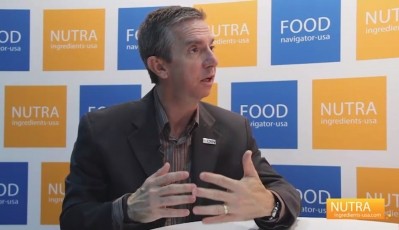Newly formed Capstone Nutrition part of the maturation of manufacturing end of supplement business, exec says

The new entity will bring a broad array of capabilities to the field, according to Greg Horn, who is CEO of the newly formed company. Capstone will bring development and formulation expertise to the the table backed by a 600,000-square-foot manufacturing footprint.
This new development is part of the maturation of the $35 billion dietary supplement market, Horn said. The industry has grown from a patchwork quilt of small firms, and as capital investors waken to the growth opportunities in the market, which has consistently outpaced the overall growth of the economy, that is changing, he said. Increasing enforcement of regulations is another factor which demands a higher level of sophistication, Horn said. He has witnessed the growth of the industry in a career that included stints as an executive General Nutrition Centers and Garden of Life.
“The manufacturing base of the supplements business is highly fragmented, in part because historically the cost of entry was low and regulation was light. With the raising of standards required by regulation and enforcement, the bar has been raised. Now and increasingly in the future successful competitors will need rigid quality control procedures and the highly trained staff to execute them, exacting sourcing on a global level, costly analytical and laboratory equipment to test inbound materials and outbound products to make sure they meet spec, and the management sophistication to make all of those systems work. That points to the need for consolidation and the advantages of scale. Smaller manufacturers simply won't have the resources to keep up with compliance, quality, and regulatory requirements both in the United States and globally,” Horn told NutraIngredients-USA.
Increasing sophistication means higher costs
Horn said the demand for contract manufacturing services is growing, both from smaller firms that lack the expertise and capital, and from larger firms that want to devote more time and energy to market development. Horn said turnkey firms like Capstone than offer a variety of services can fill a valuable niche in the market.
“This is the best option for smaller, more innovative companies early in their life cycle, but we are also seeing very large and successful brand companies in every channel of distribution wanting the same market focus and thus sticking with contract manufacturers. The costs are rising rapidly for manufacturers, and smaller manufacturers are finding it expensive and difficult to keep up. For example, capital equipment in a single analytical lab can cost several millions of dollars and the staff to run it costs millions per year,” Horn said.
“Contract manufacturers sit between innovative ingredient companies which are providing the bulk of the new research in the supplement industry and the brand companies who have a direct communication link to the consumer and are the creators of demand. Capstone Nutrition offers turnkey services ranging from innovative product concepts to technology sourcing and application to formulation to global sourcing to manufacturing services such as flavoring, blending, and packaging,” he said.









